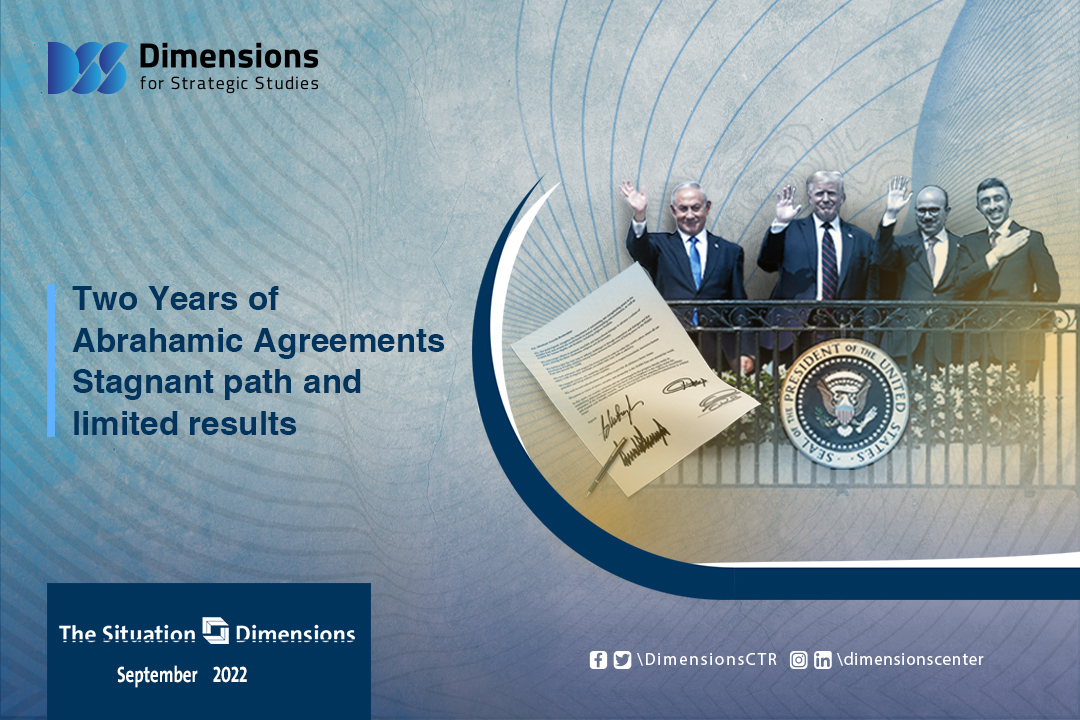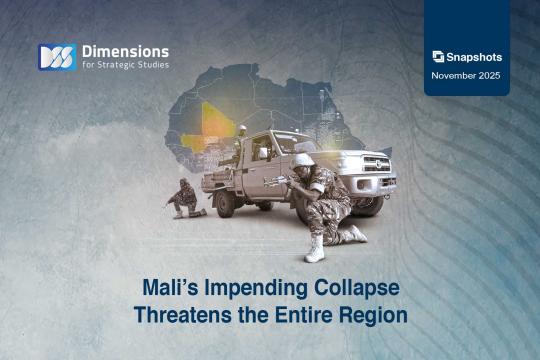
Two Years of Abrahamic Agreements Stagnant path and limited results
2022-09-152001 view
On September 15, 2020, a peace treaty between the UAE and Israel was signed at the White House, and a peace declaration with Bahrain, at a ceremony sponsored by then-US President Donald Trump, and in the presence of then-Israeli Prime Minister Benjamin Netanyahu.
Less than three months later, Morocco and Israel signed a peace agreement, which included American recognition of the Moroccanness of Western Sahara.
Those agreements came at that time surprisingly, as they were not preceded by much preamble, but followed by many expectations and statements indicating that the train of the Abrahamic agreements, as it was called, will continue quickly to include many Arab countries, with the most prominent expectations referring to Saudi Arabia, Sudan, and Oman.
However, none of this happened, as no other countries joined, despite the fact that there were public or non-public meetings at the time between Israeli officials and others from Saudi Arabia and Sudan.
The signing of the agreements came in the last months of Trump's term, when he was looking for achievements that could be used in his election campaign, and he was prepared in return to make significant concessions, as happened in the case of the recognition of the Moroccanness of Western Sahara.
On the other hand, the normalizing countries, specifically the UAE, were looking for their own insurance policy in the event of Trump losing the election, which actually happened, as the UAE somewhat avoided the punitive measures that the Biden administration implemented against Trump's allies in the region. The UAE was also seeking to build its own alliances, at a time when it realized that Saudi Arabia had begun preparing to change its positions and alliances, as well
With regard to the Abrahamic agreements, Saudi Arabia has chosen a grey position, as it has not joined them, but it has supported them politically and in the media, and provided positive signals to its parties, the most prominent of which was the announced opening of Saudi airspace to the plane that took an American delegation headed by President Trump's son-in-law and Israeli officials from Tel Aviv to Abu Dhabi, and then its decision in July 2022 to open Saudi airspace fully to Israeli aviation.
Although the Brahimi agreements were not reflected in the commercial and political levels as depicted in the expectations of politicians and analysts from the parties concerned, Israel benefited greatly from these agreements in expanding its presence in the Arab region, imposing its political discourse, and empowering its regional security and political alliance.
The Israeli success was reflected during the armed clashes between Israel and the Palestinian factions in 2021 and 2022, as the media and political discourse of the countries participating in and supporting these agreements was characterized by dealing with events impartially at best, thus limiting the usual popular attitudes in such circumstances.
Israel has also been able to expand its security and military presence in the Arabian Gulf, thereby enhancing its supremacy in this field.
Of course, normalizing nations will not have a parallel security presence in Israel. However, it has increased its level of access to Israeli technical and logistical security support, which has helped it to maximize its security capabilities in the face of internal and external adversaries.
It can be said that the Abrahamic agreements are accords of a "security-political" nature, not peace agreements, as they did not take place or might be witnessed between warring parties or ones who fought any kind of war between them at all, nor are they even geographically adjacent parties, as is the case in the Egyptian and Jordanian peace agreements with Israel.
In the medium term, that is, until at least 2025, it is not thought that the map of normalizing nations with Israel will expand. This path depends to a large extent on the results of the upcoming US elections, and whether Washington will again have an administration willing to reward normalizers or push them to normalize in order to protect their interests.





